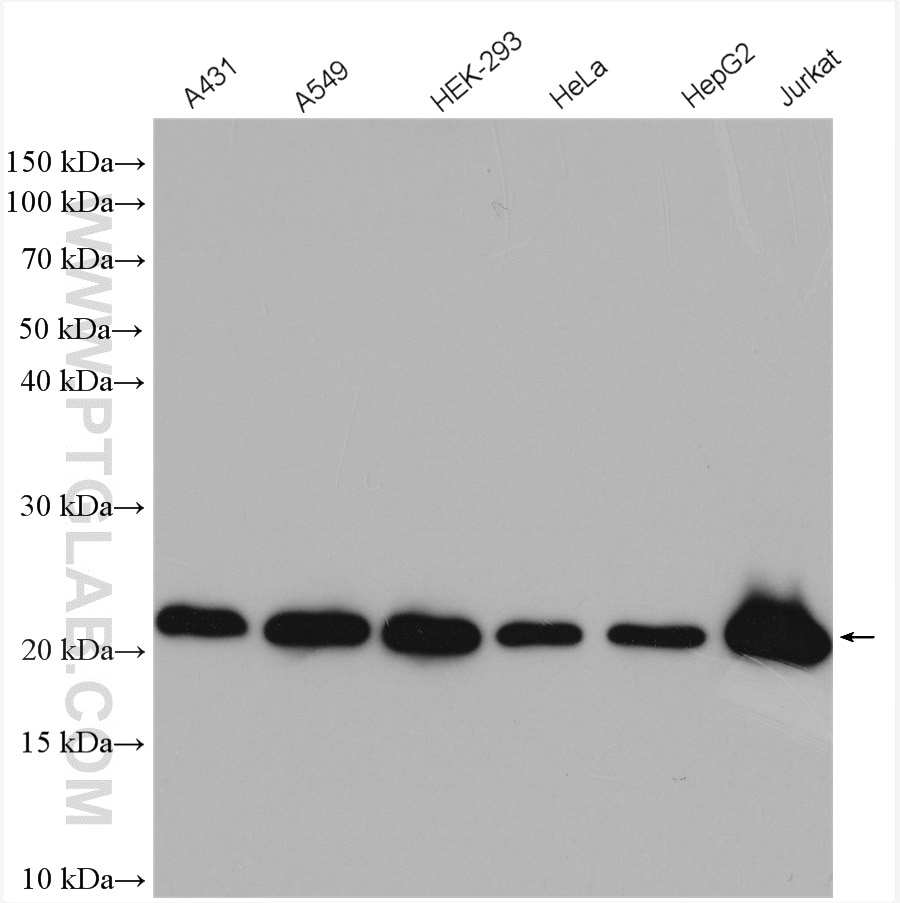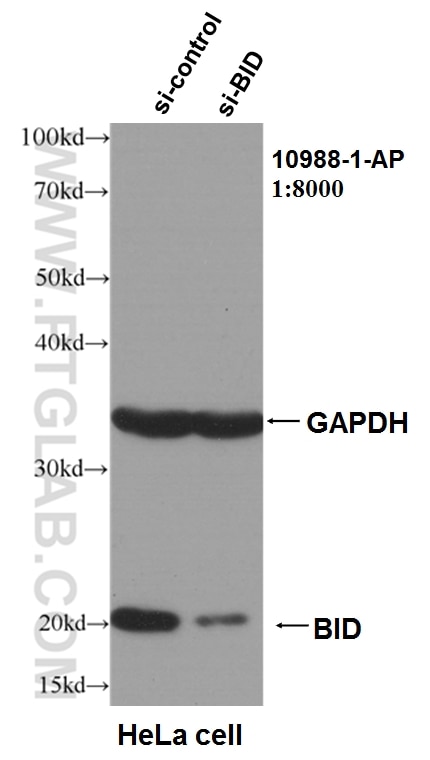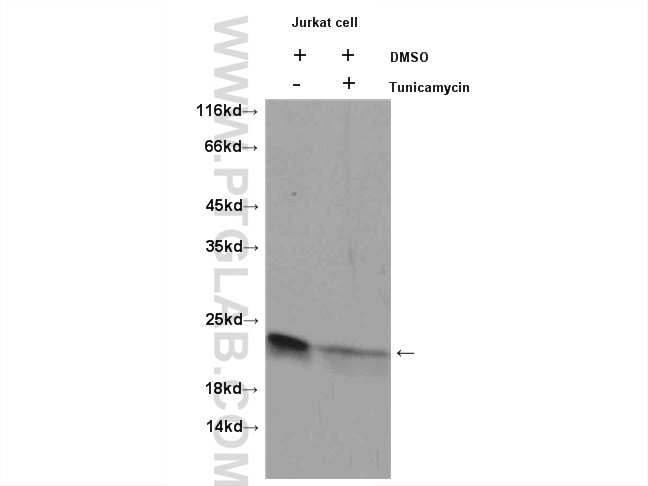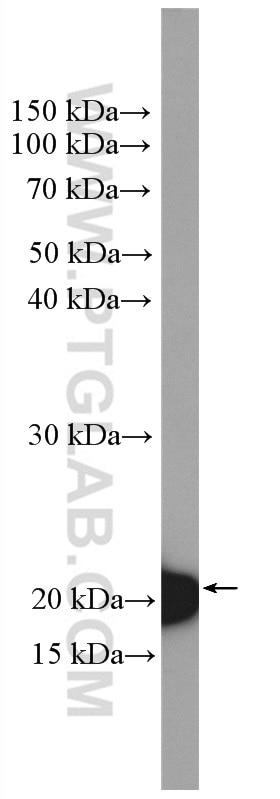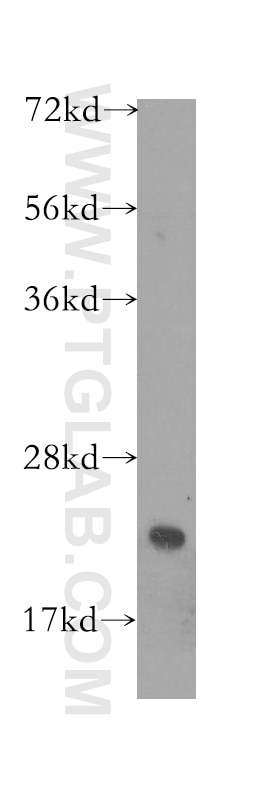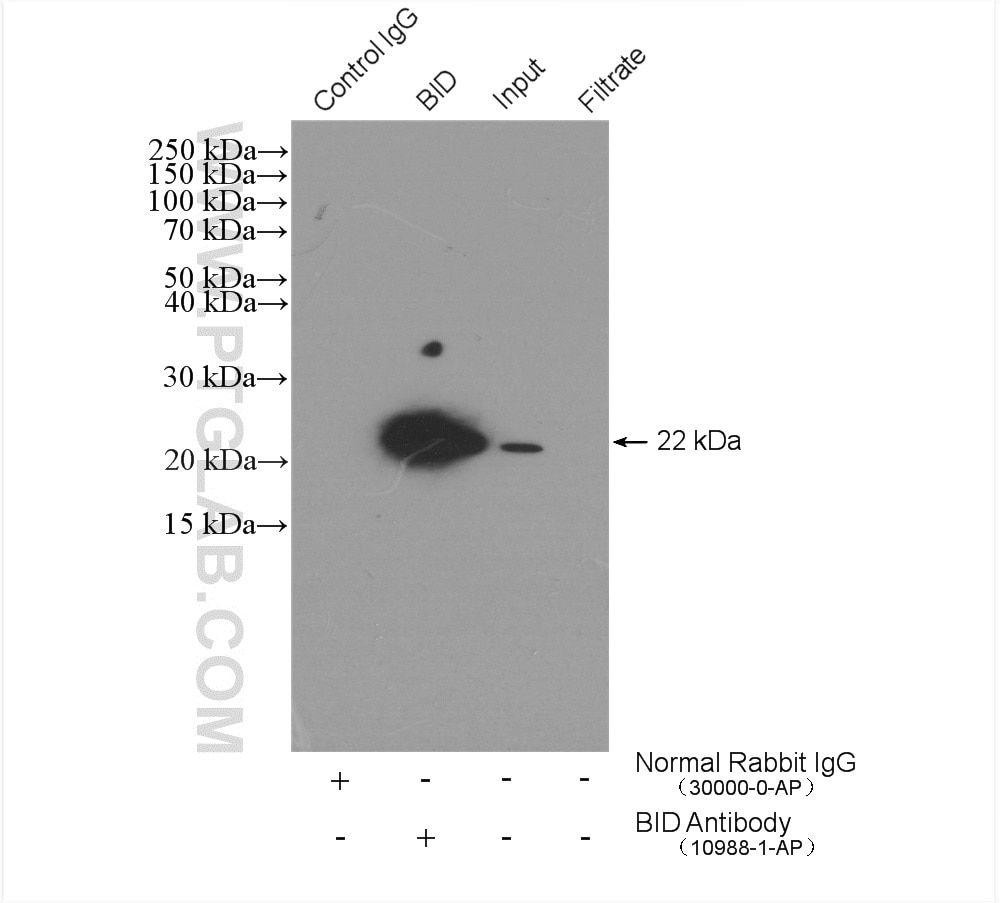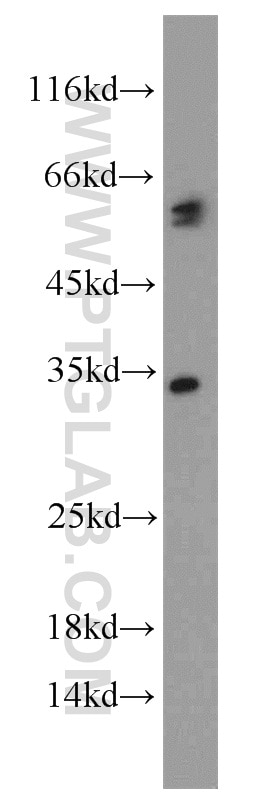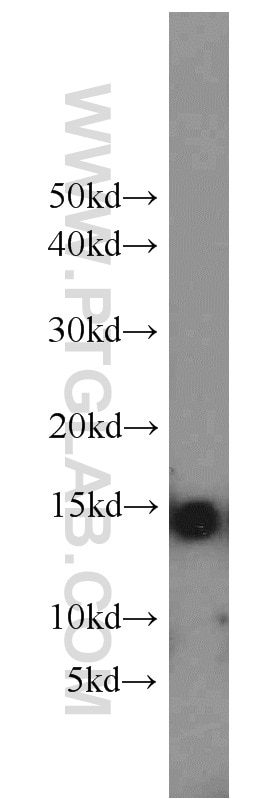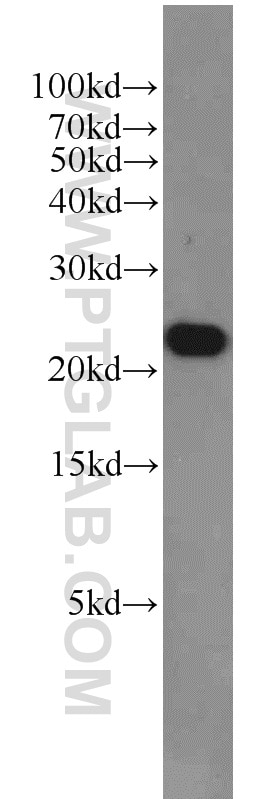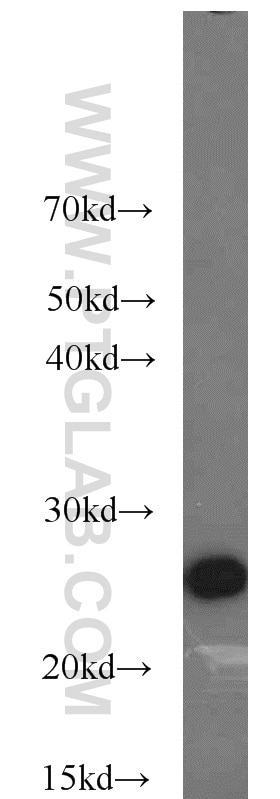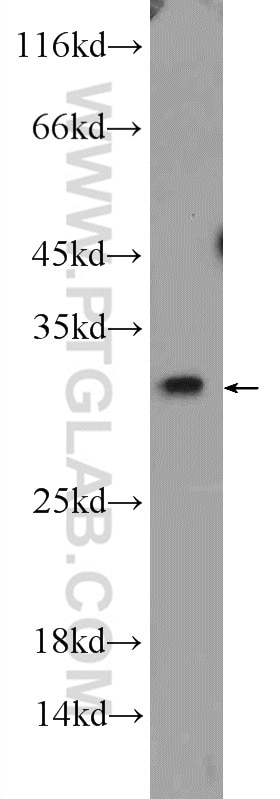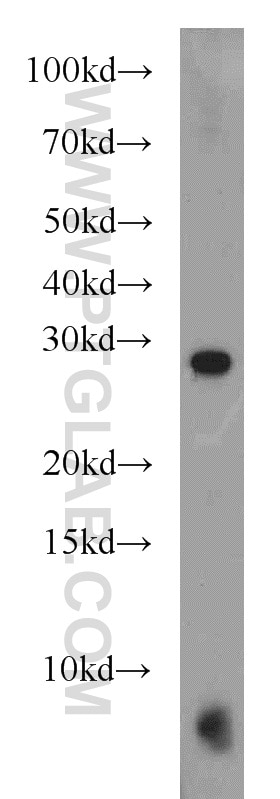- Featured Product
- KD/KO Validated
BID Polyklonaler Antikörper
BID Polyklonal Antikörper für WB, IP, ELISA
Wirt / Isotyp
Kaninchen / IgG
Getestete Reaktivität
human und mehr (3)
Anwendung
WB, IHC, IF, IP, ELISA
Konjugation
Unkonjugiert
Kat-Nr. : 10988-1-AP
Synonyme
Galerie der Validierungsdaten
Geprüfte Anwendungen
| Erfolgreiche Detektion in WB | A431-Zellen, A549-Zellen, HEK-293-Zellen, HepG2-Zellen, humanes Hirngewebe, Jurkat-Zellen, mit Tunicamycin behandelte HeLa-Zellen |
| Erfolgreiche IP | HeLa-Zellen |
Empfohlene Verdünnung
| Anwendung | Verdünnung |
|---|---|
| Western Blot (WB) | WB : 1:1000-1:4000 |
| Immunpräzipitation (IP) | IP : 0.5-4.0 ug for 1.0-3.0 mg of total protein lysate |
| It is recommended that this reagent should be titrated in each testing system to obtain optimal results. | |
| Sample-dependent, check data in validation data gallery | |
Veröffentlichte Anwendungen
| WB | See 55 publications below |
| IHC | See 3 publications below |
| IF | See 1 publications below |
Produktinformation
10988-1-AP bindet in WB, IHC, IF, IP, ELISA BID und zeigt Reaktivität mit human
| Getestete Reaktivität | human |
| In Publikationen genannte Reaktivität | human, Hausschwein, Maus, Ratte |
| Wirt / Isotyp | Kaninchen / IgG |
| Klonalität | Polyklonal |
| Typ | Antikörper |
| Immunogen | BID fusion protein Ag1445 |
| Vollständiger Name | BH3 interacting domain death agonist |
| Berechnetes Molekulargewicht | 22 kDa |
| Beobachtetes Molekulargewicht | 22 kDa |
| GenBank-Zugangsnummer | BC009197 |
| Gene symbol | BID |
| Gene ID (NCBI) | 637 |
| Konjugation | Unkonjugiert |
| Form | Liquid |
| Reinigungsmethode | Antigen-Affinitätsreinigung |
| Lagerungspuffer | PBS mit 0.02% Natriumazid und 50% Glycerin pH 7.3. |
| Lagerungsbedingungen | Bei -20°C lagern. Nach dem Versand ein Jahr lang stabil Aliquotieren ist bei -20oC Lagerung nicht notwendig. 20ul Größen enthalten 0,1% BSA. |
Hintergrundinformationen
BID, also named as p22 BID, can be cleaved into p11 BID, p13 BID and p15 BID. It is pro-apoptotic molecules. The major proteolytic product p15 BID allows the release of cytochrome c. BID-L, BID-EL and BID-ES induce ICE-like proteases and apoptosis. BID-S does not induce apoptosis. BID counters the protective effect of Bcl-2. (PMID:14583606)
Protokolle
| Produktspezifische Protokolle | |
|---|---|
| WB protocol for BID antibody 10988-1-AP | Protokoll herunterladen |
| IP protocol for BID antibody 10988-1-AP | Protokoll herunterladen |
| Standard-Protokolle | |
|---|---|
| Klicken Sie hier, um unsere Standardprotokolle anzuzeigen |
Publikationen
| Species | Application | Title |
|---|---|---|
Bioact Mater A ROS-responsive, self-immolative and self-reporting hydrogen sulfide donor with multiple biological activities for the treatment of myocardial infarction. | ||
Environ Pollut Silica nanoparticles inducing the apoptosis via microRNA-450b-3p targeting MTCH2 in mice and spermatocyte cell. | ||
Cell Mol Life Sci Clostridioides difficile toxin B alone and with pro-inflammatory cytokines induces apoptosis in enteric glial cells by activating three different signalling pathways mediated by caspases, calpains and cathepsin B. | ||
Int J Cancer Tetrandrine induces apoptosis by activating reactive oxygen species and repressing Akt activity in human hepatocellular carcinoma. | ||
Free Radic Biol Med Shikonin, a Chinese plant-derived naphthoquinone, induces apoptosis in hepatocellular carcinoma cells through reactive oxygen species: A potential new treatment for hepatocellular carcinoma. | ||
Stem Cell Res Ther Adipose-derived stem cells alleviate radiation-induced dermatitis by suppressing apoptosis and downregulating cathepsin F expression. |
